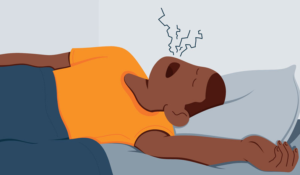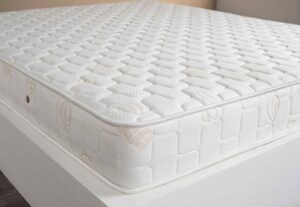Are You Trying to Sleep At Night, But Coming Up Short

Are you trying to sleep at night, but coming up short? Frequently tossing and turning in bed? Here are some tips you can use to make you fall asleep easier.
We all know the importance sleep carries in our lives and its vital role in replenishing your strength. It also helps you feel good, energetic and productive and helps the brain and body to function at their optimum.
That being said, some people have no problem immediately falling asleep when they hit their mattress brand, but for others, it can be a struggle getting some shut-eye. You toss and turn for hours, and you find yourself waking up earlier than usual. We all have some occurrences of this, but it is irritating when you know you need to wake up the next morning at your peak, yet you cannot seem to get any sleep.
Here are some simple tips you can use to fall asleep quickly during those nights when you find yourself awake for no reason.
Reduce the temperature of your room
The temperature of your body does not remain constant the whole night – it changes as you fall asleep. The core temperature will decrease, while the temperature of the feet and hands increases (which is why even if the feet are cold before sleeping, they always seem to warm up as you become sleepier).
If the temperature of the room is too hot, you will, therefore, have a problem when trying to sleep. Set the temperature to between 15 and 23 degrees Celsius (60 to 75 degrees Fahrenheit), although the individual preference can vary. The key is, find what works best for you.
In addition, taking a warm shower can also assist to speed up the changes in temperature of the body. As the body cools down, it sends signals to your brain to release melatonin, the hormone responsible for making you fall asleep.
Use the special breathing method of ‘4-7-8’
This is a method that promotes relaxation and calmness and can be very helpful particularly when the cause of your sleepless night is stress. It can also help you to generally unwind before you hit the sack.
You place the tip of your tongue behind your front teeth and completely exhale via the mouth. Next, you only breathe in through your nose as you count to four in your head. Sustain the inhaled air as you count to seven seconds in your head, then through the mouth, breathe out slowly as you count to eight.
You can repeat it more than once until you feel relaxed and ready to sleep.
Set a regular sleep schedule
Here is one fact you may not have realized – it is easy for the body to adapt itself to a regular sleep schedule, and this will How Can I Improve the Quality of My Sleep? you get every day, leading to fewer chances of waking up in the middle of the night or trying very hard to fall asleep.
The body does this through a system known as the circadian rhythm, an internal clock that alerts the body when to wake up and helps it relax before you go to bed. When you determine a set time of sleeping and waking up, this helps the body to adjust to the schedule, and it becomes easy for you to sleep and wake up at the right times – even without the need for an alarm clock.
While you are setting your sleeping time, it is very important you get seven to nine hours of sleep, as this is the best duration for the average adult. An additional task is giving yourself at least thirty minutes to wind down and relax before going to bed, and this will allow the mind and body to relax.
Allow yourself to experience darkness and daylight at the right ties
The internal clock of the body is heavily influenced by light, so irregular exposure to light will disrupt the rhythm and make it difficult for you to fall asleep. In addition, exposing your body to bright light during the day will help the body to stay alert for as long as possible and boost your energy levels.
During the night, darkness will promote a feeling of sleepiness, because the brain is using that as a signal to produce melatonin, a hormone that makes you fall asleep. If you are feeling very sleepy during the day, you can go outside and get some sunlight, and make sure you close your curtains at night to help you fall asleep.
Avoid looking at your clock
Even though it is normal to wake up sometimes in the middle of the night, it gets very hard to sleep sometimes – especially because the first impulse is to look at your phone or alarm clock beside your bed to check the time. You will begin to obsess over reasons why you cannot fall asleep, which ruins your sleep in the first place.
This trait tends to occur very frequently in individuals who suffer from insomnia, and it can bring them anxiety about their sleepiness. Worse still, the body can develop a routine of not falling back asleep when this happens frequently.
If it is possible, remove the alarm clock from your room. If you really need it, turn the clock and do not watch it in the case of waking up in the middle of the night.
Avoid taking long naps during the day
Naps are good for you in some cases, but they can be a double edged sword – especially when they are too long or you take them too late in the day. People who suffer from insomnia, in particular, tend to be sleepy during the day, leading to daytime naps, and making their problem worse at night.
If you must take a nap, let it not be more than thirty minutes, or else you risk falling into a deep sleep that is very hard to wake up from. In addition, avoid them if you have insomnia, and instead take a break to go for some fresh air or some sunshine.
Recommended Reading:
Final thoughts
If you have problems trying to fall asleep or stay asleep, you are not alone. It is a frustrating feeling and can affect other aspects of your health as well – so practice these techniques to help you relax and get some energy for the following day.






